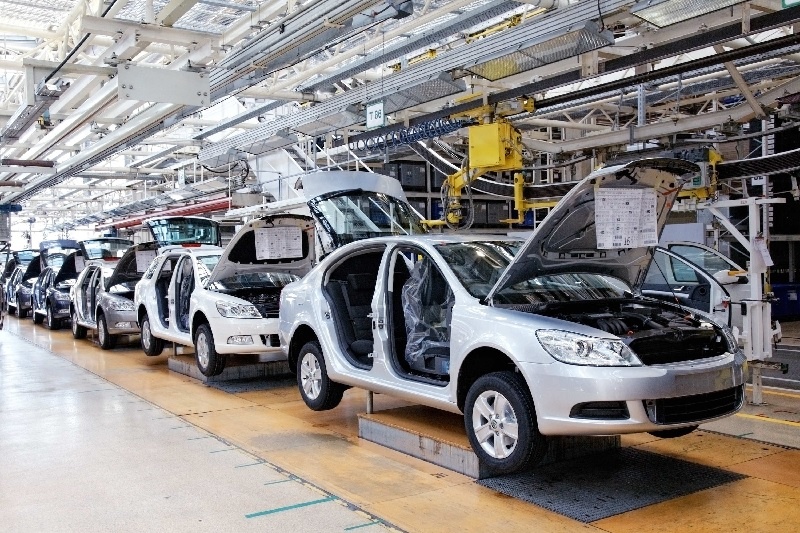Carmakers rack up profits despite global intricacies
 |
| Carmakers rack up profits despite global intricacies, illustration photo |
Some auto manufacturers predict that it won’t be until 2023 before output reaches pre-pandemic levels. According to AutoForecast Solutions, the situation should improve in 2023, but the structural problem will not yet have been fully resolved.
Big players such as Honda, GM, and Ford predicted early this year that they will be able to increase production capacity by the end of 2023. But efforts by other companies to beef up manufacturing may take longer, even stretching into 2024 and beyond.
Many car buyers continue to be dissatisfied as dealers raise prices, sometimes by over $4,000 depending on the model, using a variety of strategies in the context of the auto industry’s ongoing issues with low stocks brought on by a chip shortage globally.
Dang Thi Thuy, a 47-year-old businesswoman in Hanoi, ordered a Mercedez Benz six months ago, but so far she has not received the car as she expected. “I even offered to pay up to $4,000 higher than the listed prices to the dealer,” she confirmed.
Rising dealer prices have an impact on all brands. For instance, Hyundai dealerships offered Hyundai Tucson in standard version for $1,750-3,000 higher than the listed price, while its 1.6l Turbo model and the special petrol and diesel versions of Tucson are being sold for a difference of $4,350-6,500.
Some Hyundai dealers in Hanoi even asked customers to pay an additional $3,000-5,650 to receive its Santa Fe model or $2,150-4,350 to get its Tucson model immediately without any add-ons.
VIR reported previously that dealers were inconsistently encouraging the purchase of add-on products, leading to pricing discrimination. In some cases, it would take longer for customers to get their new car if they decided not to buy any add-ons.
Automotive brands in Vietnam have not announced any information about offending agents or specific handling methods, although they are said to have previously received some feedback from customers about the matter.
TC Group, a distributor of Hyundai cars in Vietnam, said that the shortage of components is occurring on all Hyundai products in Vietnam, mainly due to the semiconductor shortages. “The lack of chips has not been solved on a global scale, due to the negative developments of the pandemic and geopolitical activities in some regions. Production activities at Hyundai’s TC factory in the northern province of Ninh Binh only meet a small part of the current needs of customers,” noted its press release in July.
Faced with a serious shortage of components for car production, it was thought that the Vietnamese auto industry would face many difficulties this year. Nevertheless, domestic car distributors are achieving positive car sales figures.
According to the Vietnam Automobile Manufacturers’ Association, in the first half of 2022, its member units sold over 201,800 vehicles of all types, up 34 per cent on-year. In which, passenger cars reached 157,900 vehicles, up 50 per cent; commercial vehicles 40,500 vehicles, down 5 per cent; and specialised vehicles 3,400 vehicles, up 12 per cent.
Listed firm Hang Xanh Automobile Service, a Mercedes-Benz distributor in Vietnam, recorded a net revenue increase of 23.6 per cent on-year to $67 million. Profit after tax for shareholders of the parent company of this unit reached $3.5 million, nearly 14 times higher than that of the second quarter of 2021. According to Hang Xanh Automobile Service, its good results came about through the sharp increase in luxury car demand and the reduction of registration fees for cars.
The high demand and shortage of cars have caused prices in Vietnam to increase. According to data from the General Department of Vietnam Customs, the average declared value (excluding taxes and related fees) for each imported car model in the past six months increased by about $2,000 per car compared to the same period last year.
Thanks to this, a number of businesses in domestic automobile distribution have recorded profits many times higher than in the same period last year. City Auto, for example, recorded high profits in Q2. Specifically, net revenues of the dealer hit $69.5 million, up 16 per cent on-year. As a result, City Auto achieved a profit after tax of $1 million, 27 times higher than the same period.
In the first six months, the company achieved revenue of $111 million and profit after tax of $1.67 million, up 2.7 and 128 per cent, respectively, over the same period. City Auto is the current distributor of all Ford models in Vietnam.
Meanwhile, Toyota’s sales by the end of June reached almost 44,000 vehicles, an increase of 47 per cent on-year with cumulative sales of over 814,100 vehicles, continuing to lead the vehicle market. National sales of Lexus vehicles in the first half of 2022 reached 900 units.
What the stars mean:
★ Poor ★ ★ Promising ★★★ Good ★★★★ Very good ★★★★★ Exceptional
Related Contents
Latest News
More News
- Bac Ai Pumped Storage Hydropower Plant to enter peak construction phase (January 27, 2026 | 08:00)
- ASEAN could scale up sustainable aviation fuel by 2050 (January 24, 2026 | 10:19)
- 64,000 hectares of sea allocated for offshore wind surveys (January 22, 2026 | 20:23)
- EVN secures financing for Quang Trach II LNG power plant (January 17, 2026 | 15:55)
- PC1 teams up with DENZAI on regional wind projects (January 16, 2026 | 21:18)
- Innovation and ESG practices drive green transition in the digital era (January 16, 2026 | 16:51)
- Bac Ai hydropower works stay on track despite holiday period (January 16, 2026 | 16:19)
- Fugro extends MoU with PTSC G&S to support offshore wind growth (January 14, 2026 | 15:59)
- Pacifico Energy starts commercial operations at Sunpro Wind Farm in Mekong Delta (January 12, 2026 | 14:01)
- Honda launches electric two-wheeler, expands charging infrastructure (January 12, 2026 | 14:00)

 Tag:
Tag:




















 Mobile Version
Mobile Version